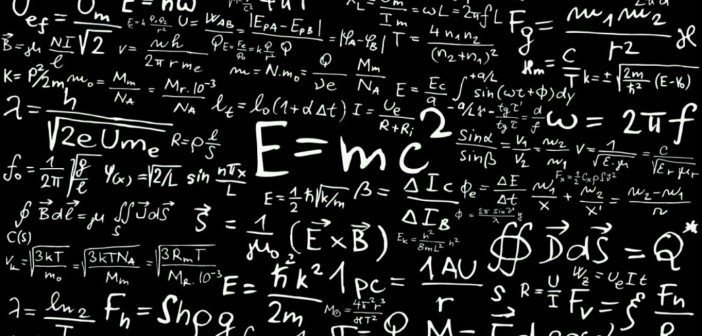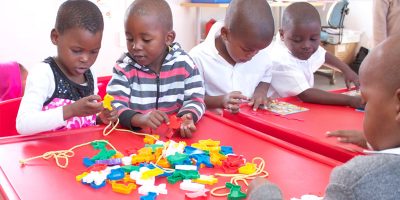If someones ask you what mathematics is how would you reply? I raise this question because many people have the second opinion about mathematics as a subject in school.
Some of you fear it for a number of reasons. Some students perform well, but others perform poorly. A number of people think mathematics is jargon of numbers and calculations. Some say it develops logical thinking and has a lot of applications in life, while others embrace it to the extent of calling it a queen of all sciences.
“Mathematics is very easy!” These words were uttered by the former Director of Teachers Education, Ministry of Education and Vocational Training (MOEVT), Mrs. Rome Masenga when she was addressing tutors at Mpwapwa Teachers’ College a few years ago. The tutors had gathered at the institutions to review the Teacher Education curriculum
Mathematics involves fields such as Arithmetics, Algebra, Geometry, Trigonometry, Topology, Modelling and Calculus. The list increases as you go up in the level of study. However, I will restrict this presentation to Primary School, Level which the background of learning it in other levels.
Quite often people fail to cope with mathematics because they did not understand it when they were in Primary School. They just memorized or crammed what teachers told them about it.
Mathematics is a subject which is learned by understanding, rather than by blind memorization, It also has structure. Among the subjects taught at school, mathematics is probably the most hierarchical, because it has a logical order to it. You cannot expect to understand any part unless you understand the parts came before.
One of the many criticisms about mathematics teaching in schools is that the structure of the subjects is neglected. Too often it is presented as a collection of bits of information and techniques with no connection to each other and learners are forced to know them. This may create distaste and hence develop lack of interest among them.
Some topics are taught before the leaners are ready for them. For example, you can see additional and subtraction being taught before the children have mastered counting.
This is because some teachers take for granted that counting is easy. It has been realized that some children can rehearse counting, and you may be deceived that they know how to count.
Also, manipulation of meters, centimeters, and millimeters is taught in situations, where the children have no clear understanding of the concept of the length. The list of things is long and perhaps it is one of the pupils’ major causes of lack of understanding of mathematics in Primary Schools.
It is very clear that such an approach is not successful for the majority of learners. For example, many pupils in primary schools have too many things to memorize and cannot relate one part of the subject to another.
The attraction of memorization without proper understanding is that it seems to give a short-cut to getting the correct answer. Unfortunately, it creates a very narrow and shallow view of the subject. It eventually creates more problems than it solves it.
Mathematicsis more than getting the correct answer since it is concerned with developing pupils’ logical and creative way of thinking and that is a powerful skill in solving new and related problems.
Just knowing how to get the correct answer is one particular situation does not always help in solving a new problem. The pupil must know how t solve problems of the similar nature.
Most of you will argue that teaching and understanding consume time and require patience. However, you will agree that it creates a much more worthwhile result and in rewarding. It makes learning mathematics a more enjoyable activity.
It creates in pupils, a much positive attitude to learning in general, and mathematics in particular. It also creates the opportunity for all pupils to experience a measure of success and progress in mathematics. In this way, they gain confidence and are better equipped for future learning.
It is, therefore, important that the learning environment of the pupil is made friendly to allow conducive interaction. The environment outside the classroom, including their homes, should also assist in the learning of mathematics.
Opportunities should be sought to use the immediate environment of the pupils to create their interest in learning mathematics. The more this happens, the more likely it will be that pupils are able to understand the mathematics and they are taught and use the knowledge acquired in their daily life.
So insist on learning mathematics by understanding the process instead of just memorizing the formulae and facts without understanding them.
Mathematics teachers should guard against assuming that the pupils understand while they are teaching. They need to include assessment and evaluation strategies that will give an indication of success or failure.
If the teacher merely asks, “Have you understood?” may not be sufficient. There is need to investigate the answer.
They ought to know that Mathematics is a way of looking at the world. It has no specific boundaries and one can be a wizard in mathematics even when one is not doing it.
Mathematical ways of thinking are spread, and there is likely to be much fruitful cooperation between specialists and non-specialist of the subjects.
Non-specialist with a wide range of backgrounds and qualification have a valuable contribution to make and they can help to free its teaching from the domination of a specialist-oriented curriculum. The specialist has his own important part to play, arising from his/her deeper and wider understanding of mathematics.
The enthusiastic mathematics teacher must be on his/her guard against telling his/her learners more about mathematics than they want to know. The challenging task is to make them want to know and to provide enough interest to enable them to make the sustainable effort needed for successful understanding.
Mathematics has grown at an increasing rate throughout the twentieth and twenty-first centuries, during which an over-widening variety of applications, often linked with the rapid increase in the number and speed computers and globalization, has taken mathematics into many fields of human activity.
Quite often some teachers have is discourage learners, for example, one professor who said,”About quarter of you will be killed, half will be wounded and the rest will escape with minor injuries. This is mathematics. Those who think they are lost can use the back stairs. No Body will notice you. It is usual for first-year students to get lost and find themselves attending wrong lectures. That is why we have introduced the orientation week. So, check yourself.” He said so after noticing a lot of students attending his first lecture at the university.
Those are discouraging words which were uttered by the professor of Mathematics before he delivered the first lecture in the new mathematics lecture hall of every charitable university.
It is said that he planned and participated in the design of the mathematics building. He was used to a few mathematics. He was surprised to note that the room he had designed for 60 students was overcrowded and 20 students were sitting on the floor.
Despite the threat, nobody moved. He said, “Mathematics is difficult. University mathematics is not like secondary school mathematics.” He looked around and noted that there were 10 girls. He continued, “even women! You are joking,” Still nobody moved. He started his lecture which he delivered in the most abstract way.
A number of us got scared but we held our guns. We were informed later that ‘killed’ meant discontinued, ‘wounded’meant repeating the year and ‘escaping with minor injuries’ meant going to the second year after scraping through.
The following day the situation was the same. Nobody opted out. The professor had to change his plan. He decided to shift his lectures to the science lecture room which had the capacity to accommodate up to 90 students.
At the end of the year, two examination papers were set, one set by him. He said that in order to go to the second year, a candidate must pass both papers. His ‘caught’ a number of candidates. He left at the end of the year and we signed with relief.
He came back five years later as a visiting lecturer. I was also back at the university to do a Master of Science (MSc) degree and he was assigned to take one course. When we met the first day in the lecture room he remarked, “so you made it!” He seemed to remember my name’. You Benial?”
“Yes”, I said. “Even the girls made it. One of the girls has obtained a Ph.D. and is teaching in the Department of Statistics.
“When I was in the airplane.” he said,”I thought of finding the volume of a hole in the ground. Assume the hole has unknown shape. I would like you to write a computer programme and this will be your project for the term. You may start today.”
We looked at one another and our faces expressed frustration. “We have invited trouble by coming back,” one of my colleagues remarked.
I have narrated this true story because teachers can discourage pupils from learning. A number of people have complained that their mathematics teachers made them run away from the subject.

















Comments